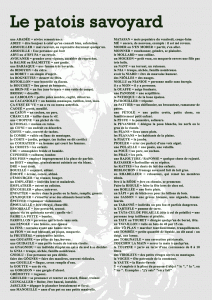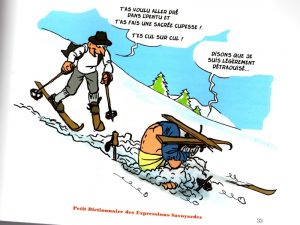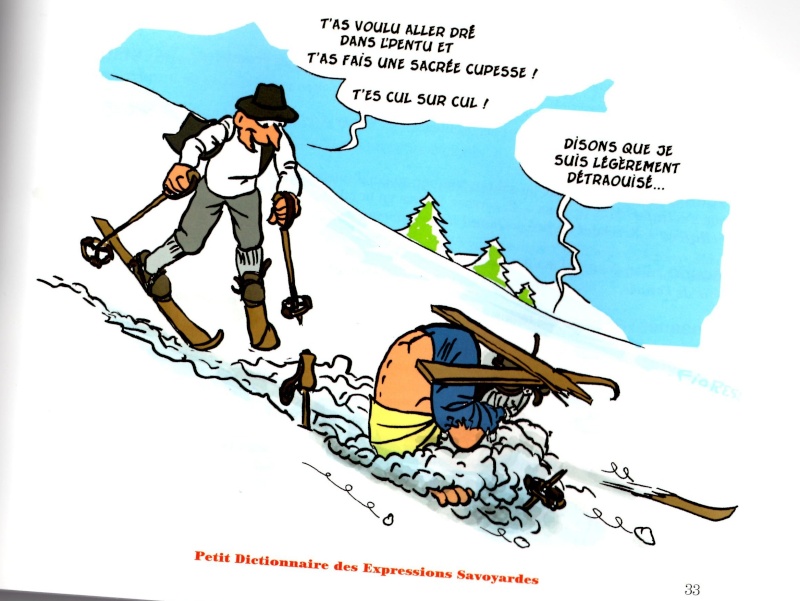
The “patois savoyard” belongs to the family of the “franco-provençal”, it is the local dialect of Savoie. It was then not written and changing from village to village and valley to valley. The Patois Savoyard is mostly used by the old generation in the country side, but some words are still used in every day’s life by locals.
A few easy rules:
* for some reasons we seem to put “y” (pronounced e) everywhere ( Y pleut, ça va t’y? faut y aller…)
* end your questions with “ou bien?”
* replace “encore” (again) by “mé”
* do not pronounce the x or z at the end of the words (La Clusaz, Chamonix, Col de la forclaz…)
A few words Patois Savoyard/English:
* the most used even by young local people is A’rvi’pâ or Arvi = Goodbye
* La Yaute = Haute Savoie
* un Monchu = a tourist doing something stupid, in patois it means Sir, it is usually used to laugh at Parisian people coming to our mountains…
* adieu = bonjour
* coffe = dirty
* une sniule ou un cacaniolet ou une grolle ou un tâtillon= someone unusually slow, annoying or lazy (I often use it in my taxi when upset)
* faire la rioule = to party
* praz = meadow (you can find it in some village’s name)
* la neph = the river
* une panosse = a floorcloth
* tartiffle = potatoe (tarfilette famous dish with reblochon and potatoes)
* pasnaille = carrots
* une gouappe = a heavy drinker
* un bagolu = wacky
* bidoyon = cider
* un brin-né = a crazy person
* cacati = old wc in the back of the garden
* ch’ni = a place in a mess
* un diot = a sausage cooked in white wine
* gran aci = thanks a lot
A few expressions:
* bois de la gnôle casse la bagnole = drink some eau de vie, break the car
* vint diou vinzou = oops
* il y a nion = there is no one



